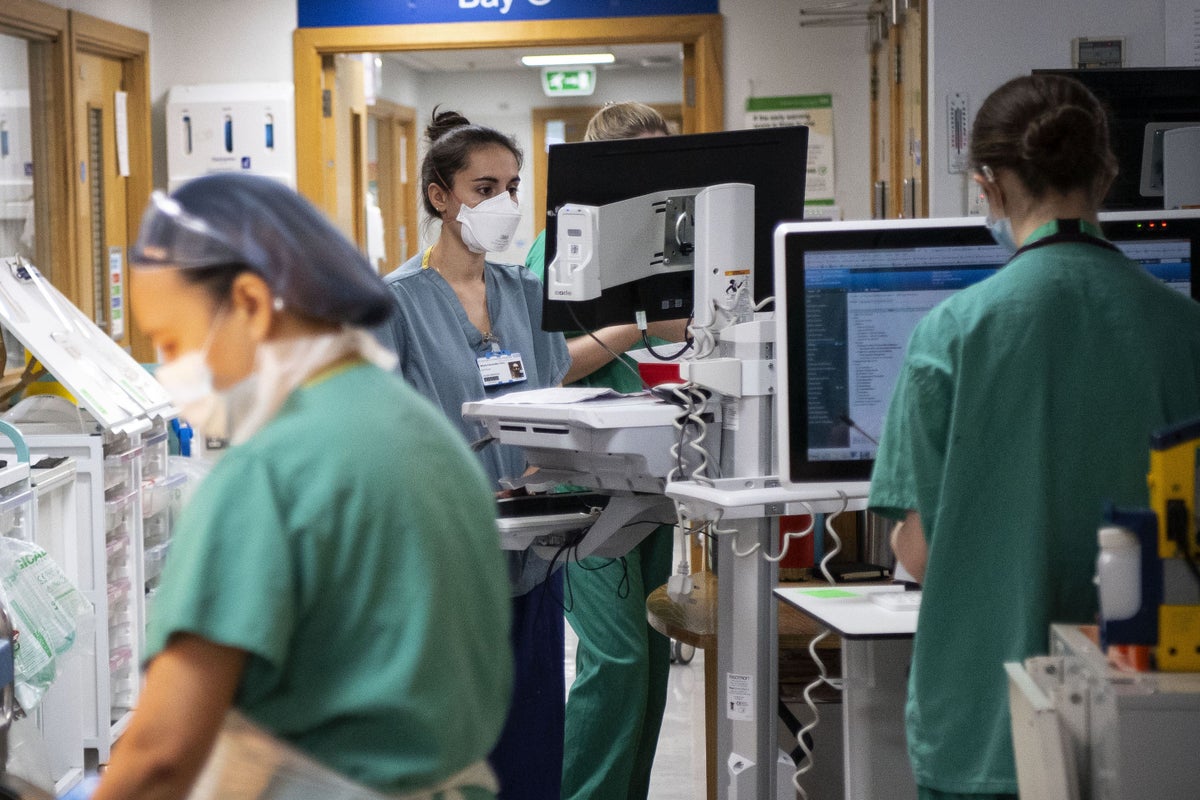
NHS leaders fear patients will come to harm as cancer services are “hit hard” by upcoming nurses’ strikes.
The NHS’s four chief nurses wrote to the Royal College of Nursing (RCN) general secretary Pat Cullen warning patients’ lives are at risk due to life-saving services not being protected when nurses walk out on Thursday.
And a separate letter from Dame Cally Palmer, the national cancer director for NHS England, urged Ms Cullen to protect urgent cancer operations from strike action “to ensure a consistent and compassionate approach for patients across the country”.
The RCN has since agreed that staff will cover emergency cancer and mental health crisis services on strike days but has maintained only night-level staffing for inpatient services.
But trust executives told The Independent that they were concerned they won’t be able to fill any gaps with agency staff due to RCN rules, which will worsen existing shortages.
One senior NHS source claimed cancer services weren’t being prioritised by unions despite national agreements to protect chemotherapy treatments.
They said: “I fear that someone is going to get hurt as the system is so pressured and fragile right now, whether strike-related or not, public sympathy will shift considerably if this were to happen.”
Have you been impacted by this story? email rebecca.thomas@independent.co.uk
Specialist cancer hospitals such as the Royal Marsden have been “hit hard”, sources said, with hundreds of appointments postponed by strikes, while another suggested thousands of cancer appointments nationally were set to be put back.
The Independent understands that unions are arguing that chemotherapy and cancer surgery shouldn’t go ahead under bank holiday or Christmas-level staffing levels, with union reps pushing for overnight levels of staffing instead.
Mental health services are also understood to be a particular area of concern, with trusts struggling to get agreements locally with union reps for child and adult crisis services staffing.
The Independent reported on Monday that patients’ surgeries could be cancelled on the day, while trusts were facing overnight levels of staffing.
In a letter reported by The Times on Tuesday, the NHS’s four chief nursing officers for England, Wales, Scotland and Northern Ireland called on Ms Cullen at the RCN to allow union members to break the picket line to cover A&E services, cancer therapy and urgent mental health care.
It said: “We hear from our colleagues that they are concerned by the assumption, implied by the RCN, that night duty staffing on day duty is safe.
“Ward activities during the day are very different to those at night. This decision has the potential to significantly impact on the safety of patient care (for example, by impacting delivery of intravenous antibiotics on time, patient observations and medication rounds). We would ask you to consider these concerns.”
Since the letter was sent on Monday, the RCN has agreed to ensure cover for emergency cancer services, mental health crisis services, and Christmas Day-level staffing for community services such as palliative care and clinically urgent interventions.
A union spokesperson said criticism of its strike action was “a politically-motivated smear from a government that is failing cancer patients”.
“Cancer patients will get emergency and clinically urgent surgery, it is not in doubt.”
The spokesperson added: “Nurse leaders are working closely with us as part of our commitment to make this strike safe and effective.
“This letter is already out of date as we have met senior clinicians today and agreed key points. The safety of patients is everybody’s top concern.
“The public backs our campaign and knows that patients need a strong nursing workforce but at the moment there are record losses jeopardising safe care.”
On Tuesday, Ms Cullen accused the government of “belligerence” after health secretary Steve Barclay refused to discuss nurses’ pay during an unsuccessful last ditch-meeting aimed at resolving the strikes.
The letter over nursing strikes comes as the NHS faces strikes next week from thousands of ambulance staff and other healthcare workers after unions GMB, Unite and Unison decided to coordinate walkouts.
Thousands of physiotherapy workers also voted on Tuesday to strike, while the Royal College of Midwives confirmed members in Wales would take action but had fallen short of the votes needed for England.
Ambulance crews in England will walk out for two days on 21 and 28 December in support of their pay claim.
Police have already refused to drive ambulances, saying they cannot handle the task on top of “ever-growing demands”, while the Fire Brigade Union also indicated its crews would not help.
National contingency plans include drafting military personnel to drive ambulances, but few soldiers have completed the required training to drive them under blue lights.
Alan Howson, chair of the Independent Ambulance Association, said private ambulance providers were also unlikely to have the capacity to step in for NHS trusts due to a lack of capacity within their own services.







